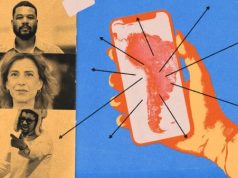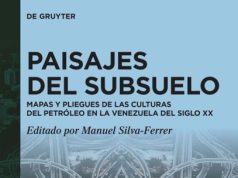

Ken Chitwood, author of Boricua Muslims: Everyday Cosmopolitanism among Puerto Rican Converts to Islam (University of Texas Press, October 2025) analyzes Bad Bunny and Puerto Rican Muslims and how both may redefine different manifestations of Puerto Rican [Boricua] identity. Here are excerpts from his article; read the full analysis at The Conversation.
Bad Bunny, born Benito Antonio Martínez Ocasio, is more than a global music phenomenon; he’s a bona fide symbol of Puerto Rico.
The church choir boy turned “King of Latin Trap” has songs, style and swagger that reflect the island’s mix of pride, pain and creative resilience. His music mixes reggaetón beats with the sounds of Puerto Rican history and everyday life, where devotion and defiance often live side by side.
Bad Bunny has been called one of Puerto Rico’s “loudest and proudest voices.” Songs like “El Apagón” – “The Blackout” – celebrate joy and protest together, honoring everyday acts of resistance to colonial rule and injustice in Puerto Rican life. Others, like “NUEVAYoL,” celebrate the sounds and vibrancy of its diaspora – especially in New York City. Some songs, like “RLNDT,” mention spiritual searching – featuring allusions to his own Catholic upbringing, sacred and secular divides, New Age astrology and Spiritism.
As a scholar of religion who recently wrote a book about Puerto Rican Muslims, I find echoes of that same strength and artistry in their stories. Although marginalized among Muslims, Puerto Ricans and other U.S. citizens, they find fresh ways to express their cultural heritage and practice their faith, creating new communities and connections along the way. Similar to Bad Bunny’s music, Puerto Rican Muslims’ lives challenge how we think about race, religion and belonging in the Americas.
Stories of struggle
There are no exact numbers, but before recent crises, Puerto Rico – an archipelago of 3.2. million people – had about 3,500 to 5,000 Muslims, many of them Palestinian. Economic hardship, natural disasters such as hurricanes Irma and Maria, and government neglect have since forced many to leave, however.
As of 2017, there were also an estimated 11,000 to 15,400 Puerto Rican Muslims among the nearly 6 million Puerto Ricans and nearly 4 million Muslims in the United States.
Bottom of Form
Like any Puerto Rican, these Muslims know the struggles of colonialism’s ongoing impact, from blackouts and economic inequality to racism. For example, in the viral 23-minute video for “El Apagón,” journalist Bianca Graulau outlines how tax incentives for external investors are displacing locals – a theme reinforced in Bad Bunny’s later song, “Lo Que Le Pasó a Hawaii.”
The video for “El Apagón” includes a short documentary about gentrification on the archipelago.
Converts to Islam also face unique challenges – and not just Islamophobia. Many are told they are “not real Puerto Ricans” because of their newfound faith. Some are treated as foreigners in their own families and friend groups, often asked whether they are abandoning their culture to “become Arab.”
To be a Puerto Rican Muslim, then, is to negotiate being and belonging at numerous intersections of diversity and difference.
Still, some connect their Muslim identity to moments in Puerto Rican history. In interviews, they told me how they identify with Muslims who came with Spanish conquistadors during colonial times. Others draw inspiration from enslaved Africans brought to the Caribbean. Many of them were Muslim and resisted their condition in ways large and small: fleeing to the forest to pray, for example, or living as “maroons” – people who escaped and formed their own communities.
Many ways to be Puerto Rican
Puerto Rican culture cannot be neatly mapped onto a single tradition. The archipelago’s religion, music and art blend together influences from Indigenous Taíno, African, Spanish and American cultures. Religious processions pass by cars blasting reggaetón. Shrines to Our Lady of Divine Providence stand beside U.S. chain restaurants and murals demanding independence.
Bad Bunny embodies this fusion. He is rebellious yet rooted, irreverent yet deeply Puerto Rican. His music blends contemporary sounds from reggaetón and Latin trap with traditional “bomba y plena.” It all adds up to something distinctly “Boricua,” a term for Puerto Ricans drawn from the Indigenous Taíno name for the island, “Borikén.” [. . .]
For full article, see https://theconversation.com/bad-bunny-and-puerto-rican-muslims-how-both-remix-what-it-means-to-be-boricua-267164
[Photo above by Kevin Mazur/Getty Images: Bad Bunny performs during his ‘No me quiero ir de aquí’ residency on July 11, 2025, in San Juan, Puerto Rico.]
Ken Chitwood, author of Boricua Muslims: Everyday Cosmopolitanism among Puerto Rican Converts to Islam (University of Texas Press, October 2025) analyzes Bad Bunny and Puerto Rican Muslims and how both may redefine different manifestations of Puerto Rican [Boricua] identity. Here are excerpts from his article; read the full analysis at The Conversation. Bad Bunny, born Benito Antonio






